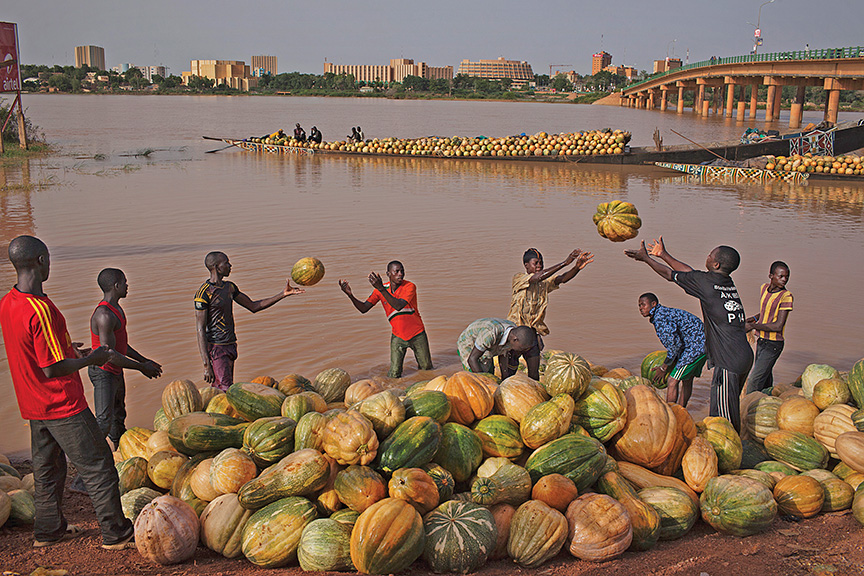ADF STAFF
The wide, languid Niger River is Africa’s third-longest at 4,200 kilometers. It stretches in a boomerang shape from Guinea up as far north as Timbuktu, Mali, before dipping southward through Niamey, Niger, and ending in the Atlantic Ocean.
Although the river is too shallow in many places for large boat traffic, small-scale merchants have used it as a commercial highway for centuries. An observer who stands on its banks in Niamey, Niger, at the right time of day will see boaters wielding long, thin paddles as they glide along in dugouts loaded with squash, fish or other goods.
This mighty river soon will have even more to offer. A multibillion-dollar hydroelectric project, the Kandadji Dam, is underway 100 kilometers north of Niamey. The project promises to bring electricity to hundreds of thousands of people and increase the Niger River Valley’s irrigated cropland from 10,000 to 55,000 hectares.
Like the river, the nation of Niger stands at an economic crossroads, with the potential to transform itself into a powerhouse in the global extractions industry based on deposits of uranium and oil.
Historically, Niger has gotten by on small, traditional business ventures. Subsistence farming still makes up a third or more of the country’s economic output, and about 90 percent of the Sahel nation’s nearly 17 million people depend on it.
In recent years, the nation has positioned itself to become the world’s second-largest uranium producer after Kazakhstan. Niger is negotiating with French nuclear company Areva to continue operation in the country. Areva also has invested in a new uranium mine at Imouraren. Security concerns have delayed that project, but it’s expected to open in late 2015. If it does, it will be the second-largest uranium mine in the world. Niger is the fourth-largest uranium producer now, according to Reuters.
Niger already has seen impressive increases in economic growth in the past few years. Reuters reports that the nation’s growth will rise to 7.5 percent in 2014 from 5.9 percent in 2013.
As with many African nations rich in natural resources, Niger will have to find a way to convert its resource wealth into tangible benefits for its population. “We’re realizing the importance of getting the right contracts in our extractive industries,” Mahaman Laouan Gaya, secretary general of the mining ministry, told The Guardian. “The uranium issue is helping us to achieve transparency and everyone is watching us to see what the outcome is.”

